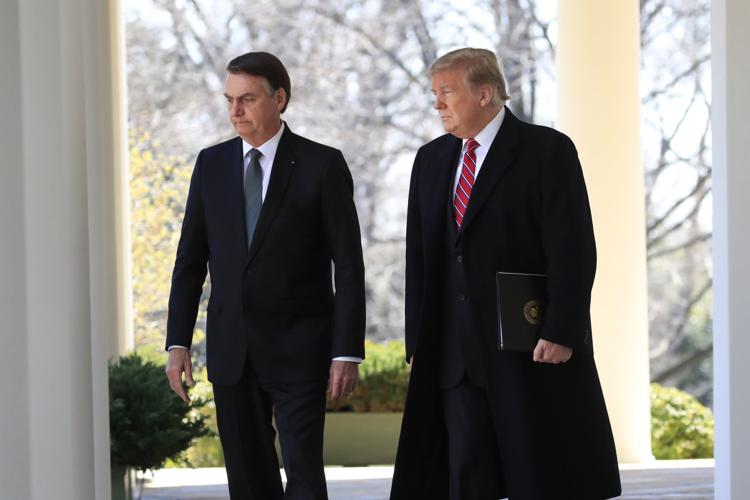When Donald Trump spent much of the 2020 presidential election sowing doubt on the validity of the results both before and after the votes were counted, scholars sounded the alarms that such actions would lead to irreparable damage to the strength of American democracy. In this year’s midterm election, a majority of Americans will have an election denier on their ballot, a figure which demonstrates the potency of misinformation in the minds of many Americans. Many scholars now suggest that American democracy is in a state of crisis never before seen in recent memory. Today, we are now seeing this rising illiberalism spill over into the politics of countries across the globe, and while the impact of this trend on democratic governance is yet to be fully seen, we should also consider how security cooperation in the so-called “liberal international order” might be impacted if liberalism continues to deteriorate. Specifically, I argue that continued democratic decline will undermine the basis for cooperation that has sustained the liberal international order for decades.
The recent presidential election in Brazil serves as a potent illustration of how illiberalism in the United States is beginning to spread to our democratic allies. Incumbent President Jair Bolsonaro has taken a page directly from the Trump playbook by sowing doubt in the legitimacy of the electoral process before the election even began. Bolsonaro has asserted, without evidence, that Brazil’s electronic voting machines cannot be trusted to accurately count votes and that any polls indicating he is losing to his opponent are not reliable. His supporters then disseminate these claims through popular apps like WhatsApp, Facebook, and TikTok, which then makes it difficult to counteract this misinformation with fact-based reporting. Moreover, Bolsonaro has been known to espouse violent rhetoric as well as denigrate his political opponents as not just incorrect on policy issues but as evil people trying to fundamentally alter Brazilian society. Scholars have noted that democracy requires a norm of toleration for one’s political opponents in order to properly function, and this type of rhetoric from Bolsonaro is in violation of this important democratic prerequisite.
Moreover, it is not difficult to see where Bolsonaro gets inspiration for his anti-democratic actions. Former President Trump routinely sows distrust in America’s elections, tacitly endorses political violence, and denigrates his political opponents in often vile terms. Anti-democratic rhetoric has become normalized in many circles within the United States, and the Brazilian presidential campaign demonstrates that the consequences of this language are not confined to within American borders. While thinking about rising illiberalism from a comparative perspective is important and makes intuitive sense, we should also consider its consequences for international relations and security cooperation in particular.
In the post-WWII era, the United States built its proclaimed liberal international order on the idea that democratic countries should create an international system of cooperation that would prevent further wars caused by the aggression of tyrannical leaders. One outcome that was perhaps not accounted for was the possibility that authoritarian leaders would arise from within this order. Because liberalism prioritizes values like political openness and free expression, it inherently gives space to actors who act in illiberal ways. However, the legitimacy of the rules-based international order led by the United States stems in part from the idea that members of that order would adhere to a set of liberal principles that implemented political equality and democratic governance. While scholars have long debated whether this is truly a rules-based order or rather a hierarchy that places powerful states at the top under the guise of liberalism, there is little question that the rhetorical force of liberal ideals served as a unifier for members of the liberal international order. Today, powerful states in that system, such as the United States and Brazil, are increasingly susceptible to illiberal forces. This means that the normative set of values undergirding the liberal international order is under threat, and a sense of tension between strong democratic states and backsliding democracies may be in store for the future.
Of course, there is a possibility that this tension will not amount to an eventual collapse of the liberal international order. Nevertheless, observers should worry about the effect of democratic decline on international relations because the alternative is likely to be less desirable for international security. While scholars can debate whether or not the liberal international order is truly a rules-based system or a hierarchy of power politics, there is little question that relations between countries within that order have been markedly peaceful. Global interconnectedness through institutions like international organizations and trade agreements has served to maintain peaceful relations between these countries for decades. If the normative framework backing these institutions begins to falter, the institutions themselves are in jeopardy. Thus, democratic backsliding poses a real threat to both the domestic protection of individual rights and the international maintenance of security cooperation.
Thus, advocates for democracy should consider the consequences of rising illiberalism at all levels of analysis. Normatively, democracy has proven to be the most effective form of government for protecting individual rights. However, there is also a security incentive to push against illiberal forces to maintain international stability among liberal states. While stymying the spread of illiberalism will be a difficult endeavor, it will be necessary for maintaining international security in an uncertain future.
Tim Bynion is a PhD student in Political Science at George Mason University’s Schar School of Policy and Government, majoring in American Government and International Relations. He holds a B.S. in Political Science from Towson University. His research interests include the domestic sources of American foreign policy, specifically issues of public opinion and national identity.
Photo can be found here.




